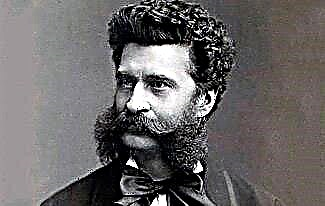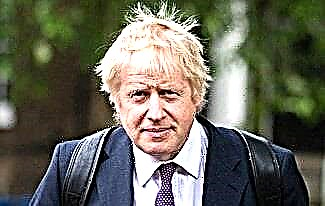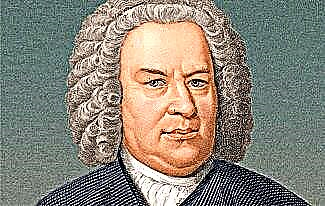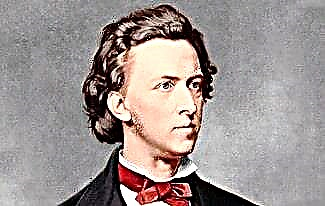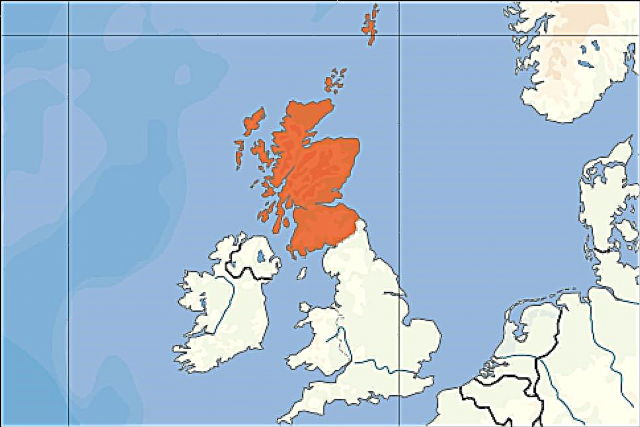Maximilien Marie Isidore de Robespierre (1758-1794) - French revolutionary, one of the most famous and influential political figures of the Great French Revolution. He advocated the abolition of slavery, the death penalty, and also for universal suffrage.
The brightest representative of the Jacobin Club since its inception. Supporter of the overthrow of the monarchy and the establishment of a republican system. Member of the rebel Paris Commune, who opposed the policies of the Girondins.

There are many interesting facts in the biography of Robespierre, which we will talk about in this article.
So, before you is a short biography of Maximilian Robespierre.
Biography of Robespierre
Maximilian Robespierre was born on May 6, 1758 in the French city of Arras. He grew up in the family of lawyer Maximilian Robespierre Sr. and his wife Jacqueline Marguerite Carro, who was the brewer's daughter.
Childhood and youth
The future revolutionary was one of 5 children of his parents. The fifth child died immediately after giving birth, and a week later the mother of Maximilian, who was barely 6 years old, died.
A couple of years later, his father left his family, after which he left the country. As a result, Robespierre, along with his brother Augustin, were taken into the care of his maternal grandfather, while the sisters were taken to their paternal aunts.
In 1765, Maximilian was sent to the College of Arras. During this period of his biography, the boy did not like to spend time with his peers, preferring loneliness to them. Remaining alone with himself, he plunged into thought, reflecting on topics of interest to him.
Perhaps the only entertainment for Robespierre was the domestication of pigeons and sparrows, which constantly pecked grain near the brewery. Grandfather wanted his grandson to start brewing in the future, but his dreams were not destined to come true.

Maximilian's academic success attracted the attention of prominent patrons. Canon Aimé made sure that the young man received a scholarship of 450 livres. After that, he was sent to the metropolitan college of Louis the Great.
Since relatives could not afford to provide material support to Robespierre, he experienced serious financial difficulties. He did not have a decent outfit and money for decent food. Despite this, he was able to become the best student of the college, knowing Latin and Greek, as well as being well versed in ancient history and literature.
Teachers noted that Maximilian was an easygoing, lonely and dreamy student. He loved to wander down the street, lost in thought.
In the spring of 1775 Robespierre was elected to deliver a laudatory ode to the newly elected King Louis XVI. Then the monarch did not yet know that the young man standing in front of him years later would become his executioner.
After completing his studies, Maximilian decided to take up jurisprudence. After graduating from the Sorbonne and becoming a Bachelor of Laws, his name was entered in the register of lawyers of the Paris Parliament.
The French Revolution
After obtaining a lawyer's license, Robespierre became interested in the teachings of contemporary philosophers, and also showed a great interest in politics. In 1789 he became one of the 12 deputies of the States General.
In no time, Maximilian became one of the most talented and famous orators. An interesting fact is that during 1789 he made 69 speeches, and in 1791 - 328!

Robespierre soon joined the Jacobins - the most influential political movement of the revolution, associated with the definition of republicanism and the use of violence in achieving their goals.
At this time of the biography, Maximilian was a supporter of the views of Rene Rousseau, severely criticizing the reforms of the liberals. For his irreconcilable campaigning and lobbying for democracy, as well as loyalty to principles, he received the nickname "Incorruptible".
After the dissolution of the National Assembly (1791), the man continued to work in Paris. He was opposed to the war with Austria, since, in his opinion, she inflicted colossal damage to France. However, very few politicians supported him on this issue.
Then no one could even think of the idea that the military conflict would drag on for a long 25 years and lead to the opposite consequences for those who strove for it - Louis 16 and Brissot with his associates. Robespierre participated in the development of the oath for officials, as well as in the drafting of the constitution of 1791.
The politician called for the abolition of the death penalty, but did not find a response among his colleagues. Meanwhile, the French troops suffered losses in the battles with the Austrians. Many soldiers went over to the side of the enemy, as trust in the government was getting lower and lower every day.
Wanting to prevent the collapse of the state, Robespierre began to call on his compatriots to revolution. In the summer of 1792 there was a riot. The leader of the Jacobins entered the self-proclaimed Paris Commune, after which he was elected to the Convention along with Georges Jacques Danton.
This is how the uprising against the Girondins began. Soon, Maximilian began to deliver speeches in which he demanded the execution of the French monarch without trial or investigation. He owns the following phrase: "Louis must die, as the fatherland must live."
As a consequence, on January 21, 1793, Louis 16 was executed by guillotine. The Jacobins secured some support from the sans-culottes and radicals. The convention decided to establish a fixed price for bread, and Robespierre himself became one of the leaders of the Paris Commune.

May of the same year was marked by an uprising in which the Girondins suffered a crushing fiasco. France was mired in chaos, as a result of which the Convention ordered the formation of committees, giving them freedom of action.
Robespierre ended up on the Salvation Committee, promoting a policy of de-Christianization. In his opinion, one of the main tasks of the revolution was the construction of a society of a new format, based on the morality of a new religion.
In 1794, the Cult of the Supreme Being was declared in the country, which was a religious cult, in the form of a series of official state revolutionary festivals. This cult was established by the government in the struggle against Christianity, and above all against Catholicism.
In his speeches, Robespierre declared that the goal can only be achieved with the help of terror. After the end of the war with Austria, the Legislature began to operate in France, which led to the dissolution of the committees. In the state, manual labor was gradually replaced by machine labor.
In subsequent years, the country began to recover from a decade of economic stagnation. Reforms were carried out in the field of education, which the church could no longer influence.
In the summer of 1794, a law was passed according to which any citizen was punished for anti-republican sentiments. Later, Maximilian Robespierre called for the execution of Danton's associates, who were political opponents of the Jacobins.
After that, the revolutionary organized an action in honor of the Cult of the Supreme Being. The suspects were unable to enlist protection and support, while the authority of Robespierre was getting lower every day. Thus began the Great Terror, during which the Jacobin dictatorship collapsed.
Over time, on July 27, Robespierre with like-minded people was put on trial. Due to the conspiracy, they were outlawed, and Maximilian himself was overthrown.
Personal life
Robespierre's favorite girlfriend was Eleanor Duplet. They felt for each other not only mutual sympathy, but also had the same political views.
Some biographers claim that Maximilian offered a hand and heart to Eleanor, while others deny such a statement. Be that as it may, the matter never came to a wedding. An interesting fact is that the girl outlived her lover for 38 years and wore mourning for him until the end of her life, without ever getting married.
Death
Maximilian Robespierre was executed by guillotine on July 28, 1794. At the time of his death, he was 36 years old. His body, along with other executed Jacobins, was buried in a mass grave and covered with lime so that no trace of the revolutionary would remain.
Robespierre Photos








